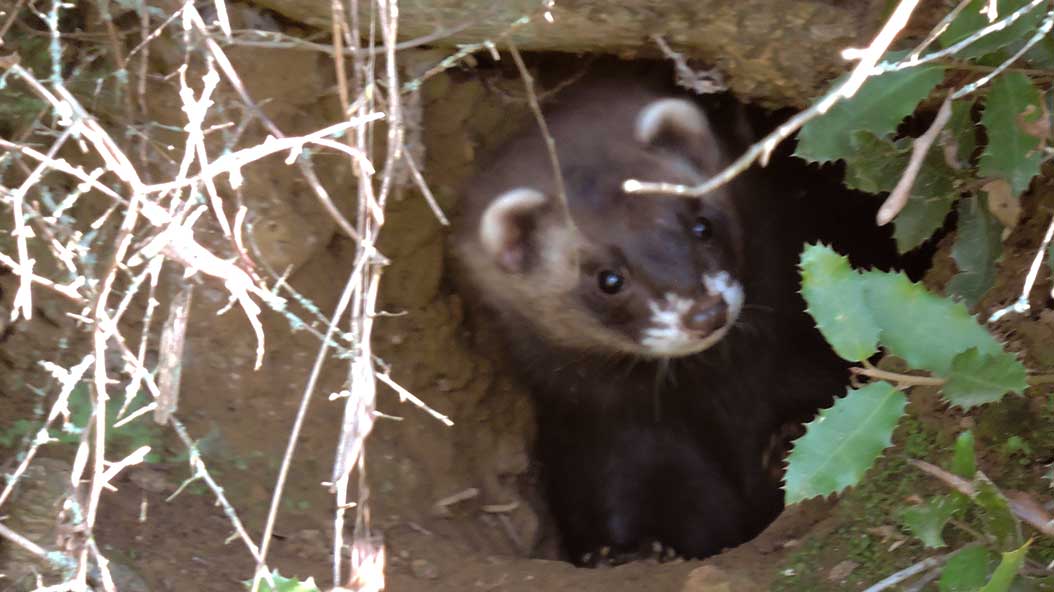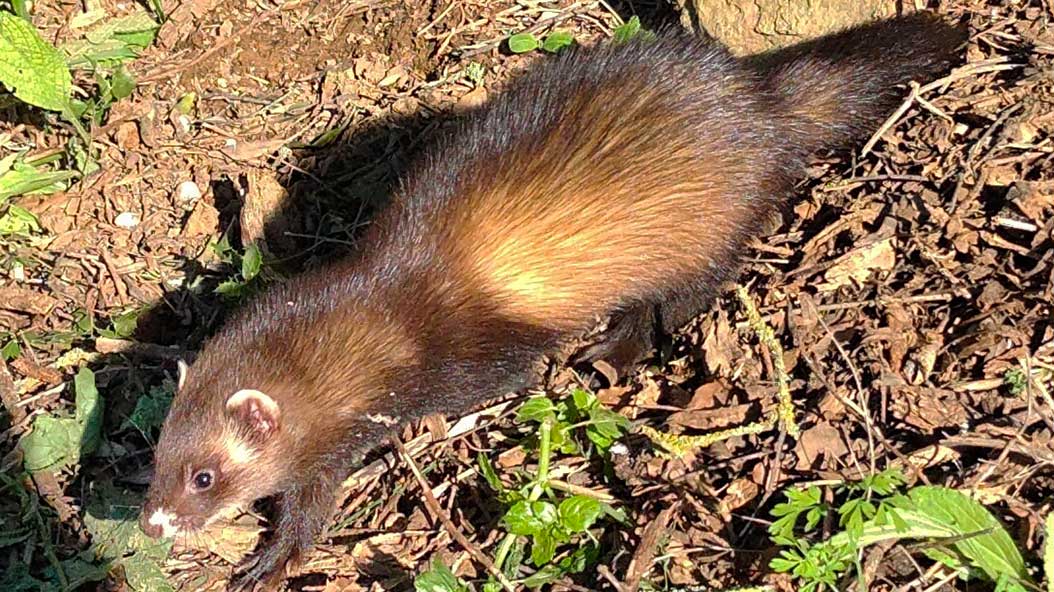Barcelona Zoo participated this Monday in the release of five captive-bred European polecats (Mustela putorius) into the Baix Empordà region. The release was part of TuroCat, a programme to restore this species in Catalonia, led by the Department of Territory, Housing, and the Ecological Transition, in collaboration with Zoo de Barcelona, the Trenca Association, the Association for the Defence and Study of Native Flora and Fauna, and the WildCoM research group from the Autonomous University of Barcelona’s Faculty of Veterinary Medicine.
In total, three females and two males from the Camadoca Wildlife Conservation Centre, managed by the ADEFFA association, were released to boost existing populations, maintain connectivity between the Ter, Fluvià, and Muga river basins, and improve their habitat.

A species in danger of extinction in Catalonia
The Catalogue of threatened native wildlife and protection and conversation measures for protected native wildlife lists the European polecat as a species in danger of extinction in Catalonia. In fact, it is one of our most endangered mammals. It is estimated that its range has shrunk by 80% over the past 50 years, and it is currently found only in the plains of Alt and Baix Empordà and in very low numbers in the forests of the Eastern Pyrenees. Several factors have contributed to its decline, including poison to control other predators, potential hybridisation with ferrets, the use of pesticides and rodenticides, habitat destruction, and traffic accidents.
The TuroCat project is working to restore the species through an ex-situ breeding programme at the Camadoca Wildlife Centre and the Pont de Suert Wildlife Centre. This approach enables the breeding centres to maintain a genetically diverse population, supporting the species’ recovery in the coming years. Since the breeding programme began in 2021, 62 specimens have been born.
In 2024, 20 babies (11 females and nine males) were born at the wildlife centres. Five were released today in the Baix Ter area, and additional specimens will be released on Thursday at the Raimat Natura site in Lleida, where a new population is being established as an experimental trial. Further releases are planned in the Albera area of Alt Empordà. In total, 17 polecats will be released. The remaining three will join the breeding stock.
This marks the fourth reintroduction carried out under this project, involving the Department of Territory, Housing, and the Ecological Transition, Zoo de Barcelona, the Trenca Foundation, the Association for the Defence and Study of Native Flora and Fauna, and the WildCoM research group from the Autonomous University of Barcelona’s Faculty of Veterinary Medicine.



